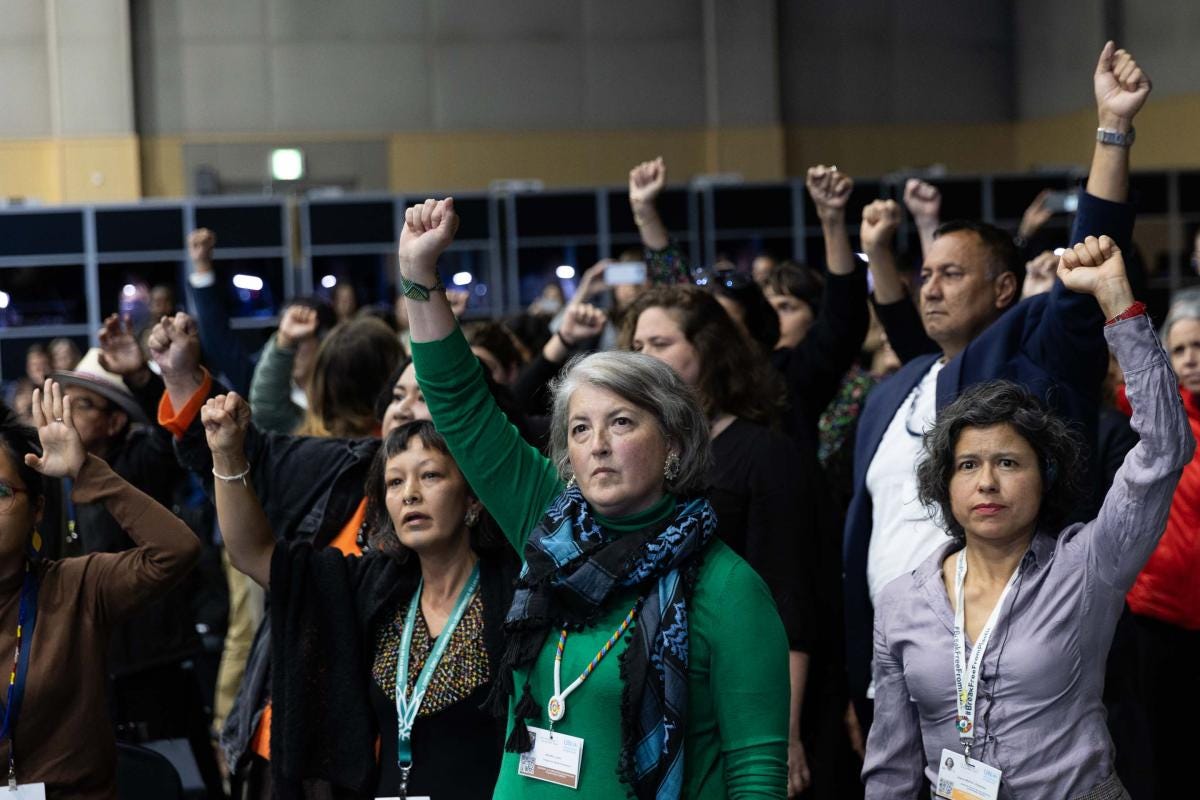Indigenous peoples snubbed at plastic pollution summit
“This entire process has been a violation,” said one Indigenous representative who engaged in protest at the summit.

Last week’s United Nations plastic treaty negotiations were supposed to result in a global treaty to safeguard frontline communities from the plastic waste crisis.
Not only did the talks fail to produce a treaty…


